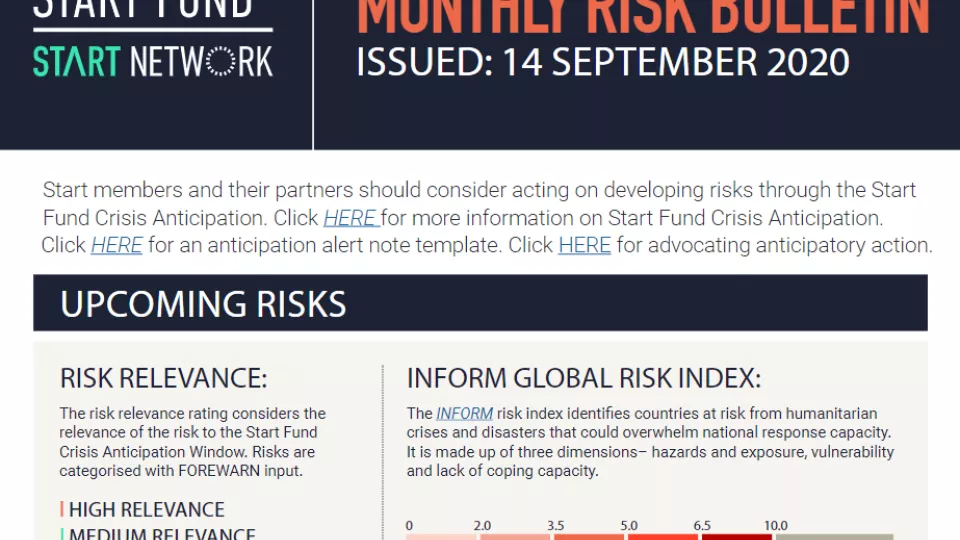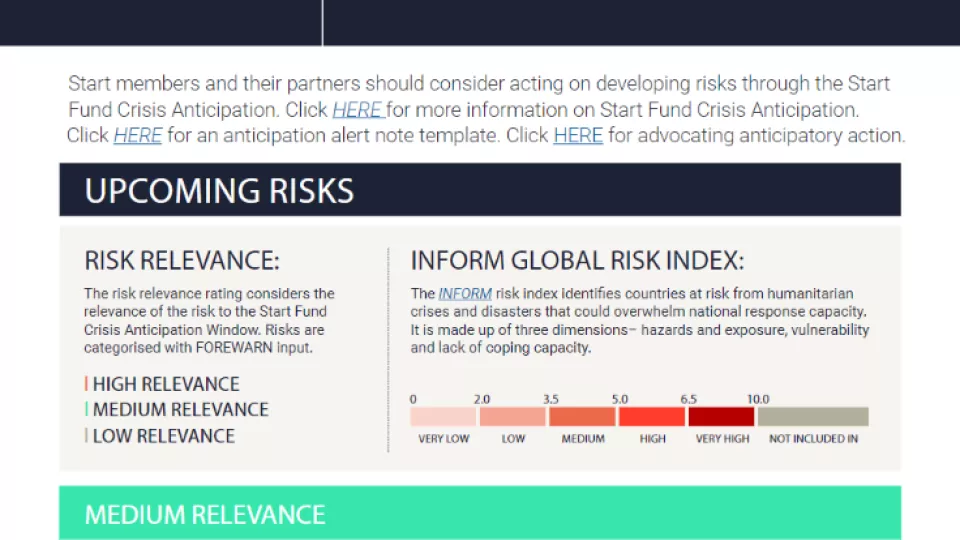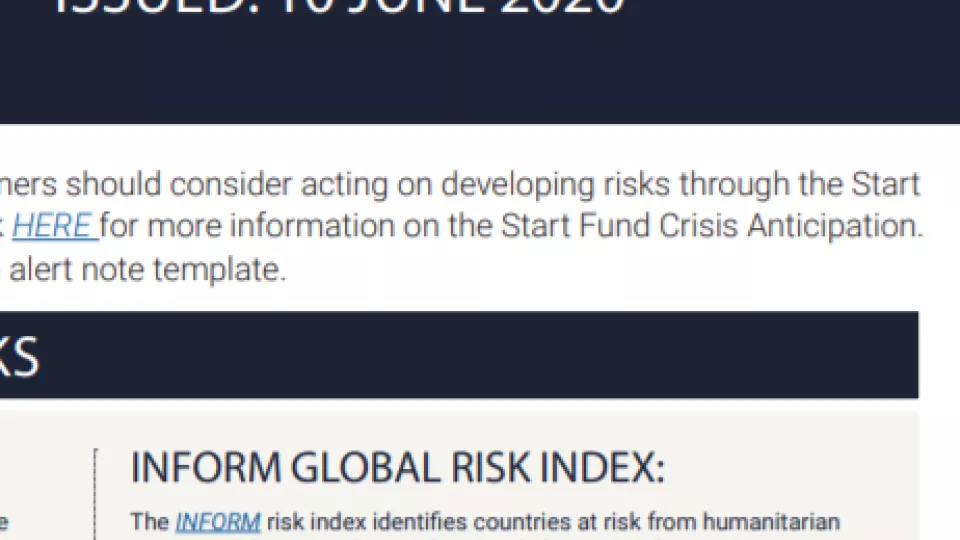
Risk Brief September 2020
The monthly risk briefing reports on new, emerging or deteriorating situations; therefore, ongoing events that are considered to be unchanged are not featured and risks that are beyond the scope and scale of the Start Fund are also not featured. It is collated by the Start Network Anticipation and Risk Financing team using information from academia and research institutes, government departments, ACAPS, global risk indexes, risk information provided by Start Members and their partners, and the media. Key risks are shared and collated each month with FOREWARN input.


